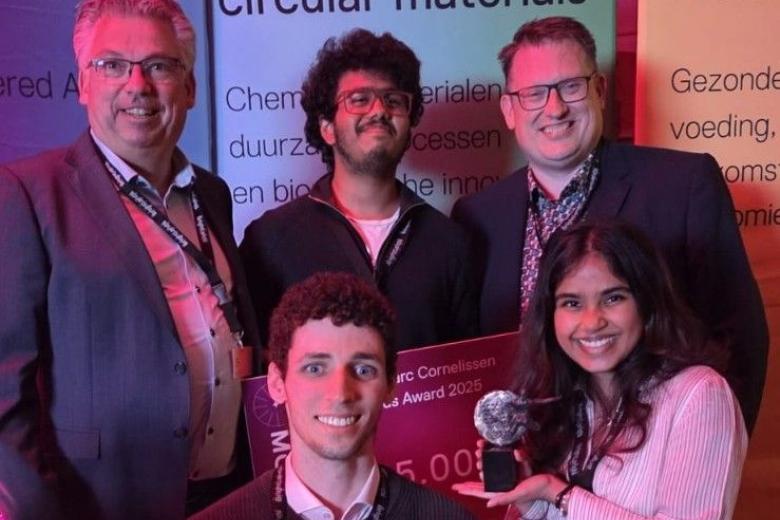HBO-Monitor: Good labour market prospects for HBO graduates
Most university of applied sciences (HBO) graduates in the Netherlands continue to do well in the labour market. This is the picture that emerges from the annual HBO-Monitor survey conducted by the Research Centre for Education and the Labour Market (ROA) at Maastricht University. The most important conclusion is that almost all HBO graduates who completed their degrees in 2019/2020 class have a job; four out of five work in jobs requiring at least their own level of education, and over 60% already have a permanent job. “It’s striking how well this group of HBO graduates is doing, considering that they entered the labour market when the COVID-19 pandemic was in full swing,” says Dr Barbara Belfi, project manager for the HBO-Monitor at ROA.
The HBO-Monitor is an annual survey among all HBO graduates in the Netherlands. It provides insight into the (labour market) position of graduates and shows to what extent study programs prepare their students well for the labour market. The monitor is carried out by the Research Centre for Education and the Labour Market (ROA) at Maastricht University under the auspices of the Association of Universities of Applied Sciences.
Plenty of work for HBO graduates
HBO graduates did particularly well in the labor market in 2021, especially given the circumstances at the time of graduation. Most graduates who completed their degrees in the 2019/2020 academic year entered the labour market when the corona pandemic was in full swing, the rest a few months before the pandemic set in. Despite this, their unemployment level of 2.6% was significantly lower than in 2020, when 4.2% of all graduates were unemployed. In fact, the unemployment rate reached its lowest level in the past decade.
This decrease is particularly strong among full-time graduates, of whom 3.0% are now unemployed, compared to 4.8% in 2020. However, there is also a slight decrease among graduates of part-time and dual higher vocational education (respectively 0.7 % and 0.6%, both a tenth of a percentage point lower than last year).
Although it took slightly longer on average to find work than last year, 80% of full-time graduates found a job immediately, compared to 83% last year, and only 12% had to search for more than 3 months (last year 10%).
Job quality
It is also striking that 61% of this cohort already has a permanent appointment, compared to 59% a year earlier. The number of people who found work requiring at least their own education level also increased (81% versus 79%). More than three quarters of all graduates also found work matching their own field.
Also read
-
Roy Broersma (CEI): Guiding Aestuarium from idea to venture
Roy Broersma, director of the Center for Entrepreneurship & Innovation (CEI) at SBE, has been closely involved in guiding Aestuarium from an early student startup to a growing venture. From spotting their potential during the Brightlands Startup Challenge supporting them through CEI.
-
Despite a less tight labour market no end to shortages in healthcare, education, and tech
Interesting new findings in the report 'The Labour Market by Education and Occupation until 2030' from the Research Centre for Education and the Labour Market (ROA) at Maastricht University.
-
Maastricht University ranked #3 worldwide and #1 in Europe in 2025 Better World MBA Ranking
We are incredibly proud to share that the MBA programmes of Maastricht University School of Business and Economics’ executive branches, MSM and UMIO, have once again been recognised among the very best sustainable business MBA programmes worldwide. In the 2025 Better World MBA Ranking by Corporate...